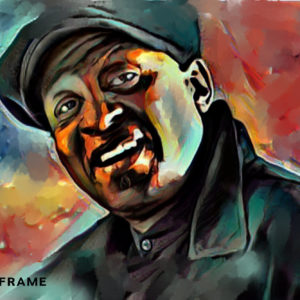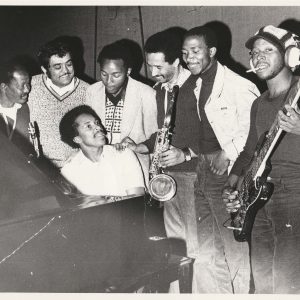Richard H Kirk’s 50 years of cutting-edge sound
The British electronic music veteran and Cabaret Voltaire member knew how to push the boundaries and deliver groundbreaking music.
Author:
8 October 2021
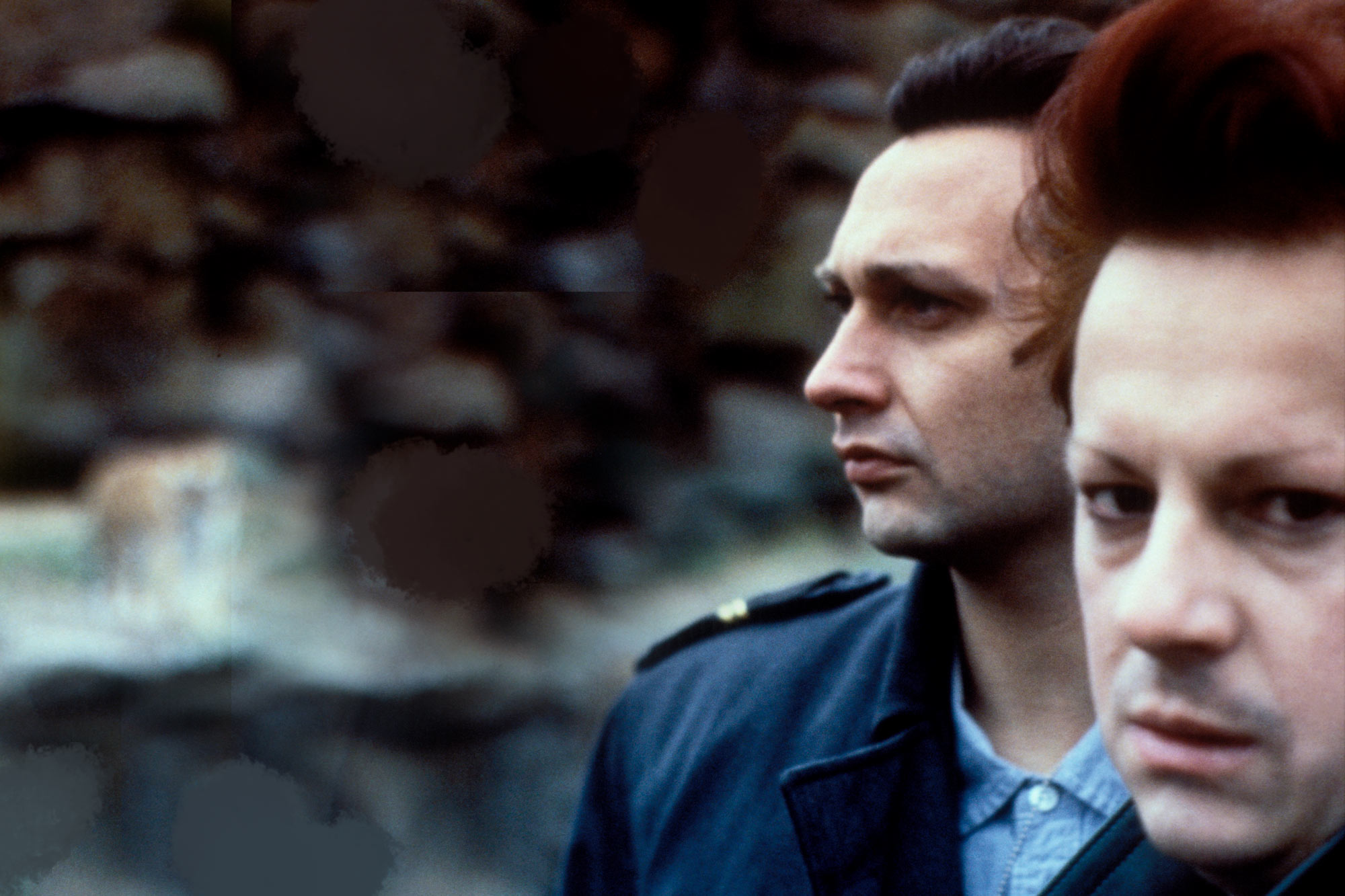
Jazz scholars say Miles Davis changed jazz music as many as five or six times through his career, such was his talent. A similar argument could be made about one of the founding fathers of British electronic music, experimental Sheffield musician Richard H Kirk.
From his early days in the band Cabaret Voltaire at the birth of what would become known as the industrial music genre, to his early releases in the United Kingdom of a strain of techno that would become known as the bleep and bass genre, Kirk was ever-present. He was illuminated in the white heat of the cutting edge and there are echoes of his work everywhere.
As fellow Cabaret Voltaire member Stephen Mallinder says in Assimilate: A Critical History of Industrial Music by S Alexander Reed, “the actual sounds and processes on which industrial music templates were drawn continue to echo through contemporary urban sounds of dubstep, grime and electronic dance music and are evident in work by noise and sound artists”.
Mute Records, Kirk’s label, announced his death on 21 September, calling the musician a “towering creative genius”. Tributes began to pour in.
Related article:
Kirk’s “overall contribution to the development of electronic music may only be fully understood in the years and decades ahead”, Matt Anniss wrote on the Juno Daily website. And “he did whatever he liked creatively, with scant regard for whether it would find an audience or sell in significant quantities”, Anniss wrote in his chronicle of the scene in which Kirk was major player, called Join the Future: Bleep Techno and the Birth of British Bass Music.
His electronic music peers in the UK paid tribute via Twitter. 808 State called Kirk “one of the UK’s daddy’s of electronica”, Orbital spoke of his “massive” influence on their music and New Order tweeted about how Cabaret Voltaire had helped the remaining members of Joy Division “enormously” when recording their first music as New Order after singer Ian Curtis had died by suicide. Across the Atlantic, famed American producer Steve Albini wrote about being “rapt and intoxicated” in the 1970s and 1980s listening to Cabaret Voltaire’s records.
Perhaps the most poignant tribute came from Mallinder, who wrote shortly after his former band mate’s death was announced: “Difficult to live with but impossible not to love. Stubborn, no sufferer of fools, but insightful, spontaneous, and with vision… and underneath the spiky shell a warm heart. I’m truly devastated. RIP Kirky.”
Band of one
When news of a new Cabaret Voltaire album titled Shadow of Fear emerged in 2020, it sent ripples of anticipation through the global electronic music industry. The new album, set to drop on 20 November, would be the band’s first in 26 years.
At the time of the band’s previous record, 1994’s The Conversation, Cabaret Voltaire were the duo of Kirk and Mallinder, with Chris Watson having left in 1981 after the first few records. However, this new 2020 version of Cabaret Voltaire was a band of one, Kirk, and when Shadow of Fear was finally released, it did not disappoint.
It is a dark and disorientating record dripping in punk attitude and fuelled by production trickery that draws on dub, post-punk, motorik, techno, drone and noise. Highlights such as the 11-minute Universal Energy and eight-minute Papa Nine Zero Delta United show that Kirk had lost none of his edge when it came to producing vital experimental electronic music.
At the time of the album’s release, Kirk explained that it was finished before the Covid-19 pandemic really took hold but that Shadow of Fear felt like a “strangely appropriate title for these trying times”.
“The current situation didn’t have much of an influence on what I was doing … but maybe due to my nature of being a bit paranoid there are hints there about stuff going a bit weird and capturing the current state of affairs.”
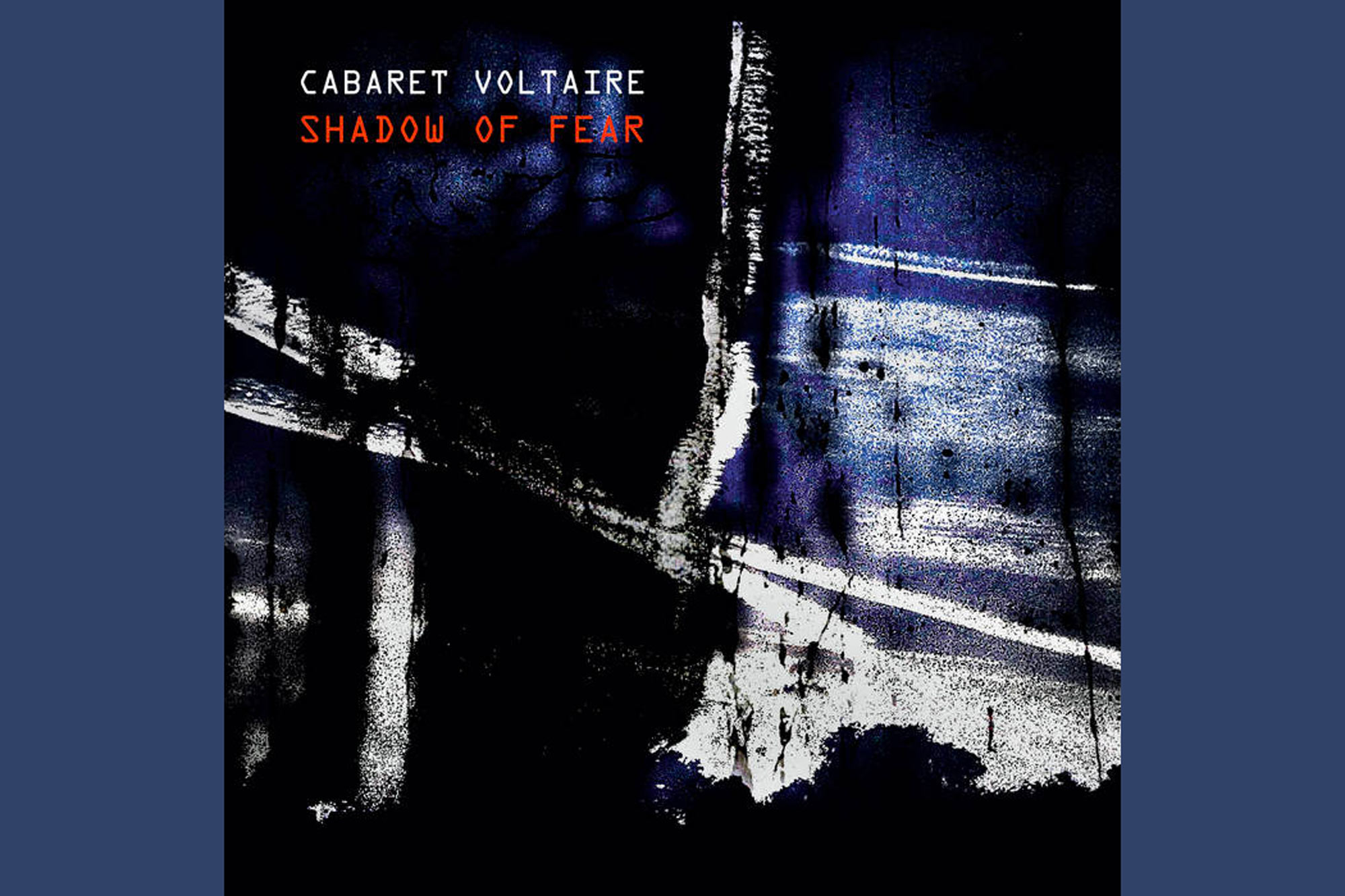
Less than three months later, Cabaret Voltaire fans were greeted with a new 30-minute EP Shadow of Funk, a dance floor-directed companion to Shadow of Fear. Highlight Billion Dollar, with its euphoric synths, sounds like a nihilistic rave in Armageddon time, an apt soundtrack to the Covid-19 pandemic where billionaires get richer and everyone else more impoverished.
In the months that followed, two further drone albums were released, Dekadrone and BN9Drone, which offer up more challenging sound experiences.
Dekadrone occupies a harsh tonal world of bass pulses, white noise and washed out distortion, saturated in anxiety and punctuated by muffled vocal samples like smudges against the drone. The swarming and rumbling BN9Drone offers a less ferocious listen by comparison, as a study in the build and release of tension.
Four new Cabaret Voltaire releases in six months, it was as if the floodgates had opened – and all of the new work was top drawer. Fans began looking towards a future where Cabaret Voltaire was no longer just a band of importance in the annals of history but an ongoing concern.
And then just like that Kirk was gone, this last chapter in the Cabaret Voltaire story his parting gift.
The birth of industrial music
Kirk was born in 1956, and his music career began in 1973 when he met fellow Sheffield youth Watson. Inspired by Brian Eno, the two used tape decks and oscillators to record experimental compositions. They soon recruited Mallinder and Cabaret Voltaire was born, named after the famous Dada nightclub in Zurich.
As Sheffield music historian Martin Lilleker recalls in Assimilate, the band used to drive around Sheffield in a friend’s van with speakers mounted on top of it, blasting their tape loops at pedestrians and cars to see the reactions it invoked.
Related article:
By 1978, the band had signed to Rough Trade and they released their debut album Mix Up the following year. Cabaret Voltaire ploughed their sign-up money into a studio in an old cutlery factory known as Western Works, ensuring the band owned the means of production. A string of now-revered experimental albums would follow, such as 1981’s Red Mecca and 1983’s The Crackdown.
As Mallinder wrote in the foreword of Assimilate, the band’s legendary output was all about “time and place … There was a fusion of raw elements. Readily available technology, post-punk ideology, a vibrant DIY ethos, burgeoning Reganomics, and a whiff of insurrection in the air.” As Kirk described it for the Resident Advisor website in 2016, Cabaret Voltaire were constantly harassed by police roadblocks while touring the north of England during the miners strikes of the 1980s.
Bleep and bass
While there may have been 26 years between Shadow of Fear and the previous Cabaret Voltaire album, Kirk had not been idle. He had been busy shaping a strain of UK techno that would become known as bleep and bass.
Kirk began his solo career in 1980 with the tape Disposable Half-Truths, released on Throbbing Gristle’s Industrial Records label. This was the same year Cabaret Voltaire released their second album The Voice of America on Rough Trade. As Cabaret Voltaire rose in profile, Kirk continued to put out a steady string of solo releases, eventually bringing his solo work home to Rough Trade too.
As the 1980s faded into the 1990s, Kirk began working with Richard Barratt, also known as DJ Parrot. The resulting project dubbed Sweet Exorcist would provide early seminal releases such as 1989’s Testone and 1990’s Clonk for the then embryonic Sheffield-based label Warp Records.
Although this new UK take on Detroit techno with influences drawn from Chicago acid house would not yet have the cohesive genre tag bleep and bass, under which it is now known, this was the very beginning of the genre. Alongside artists such as Nightmares on Wax, Unique 3 and Aphex Twin, Kirk helped shape the beginnings of UK techno and this new music would inspire Cabaret Voltaire too, as can be heard on their 1991 album Body and Soul and 1993 album International Language.
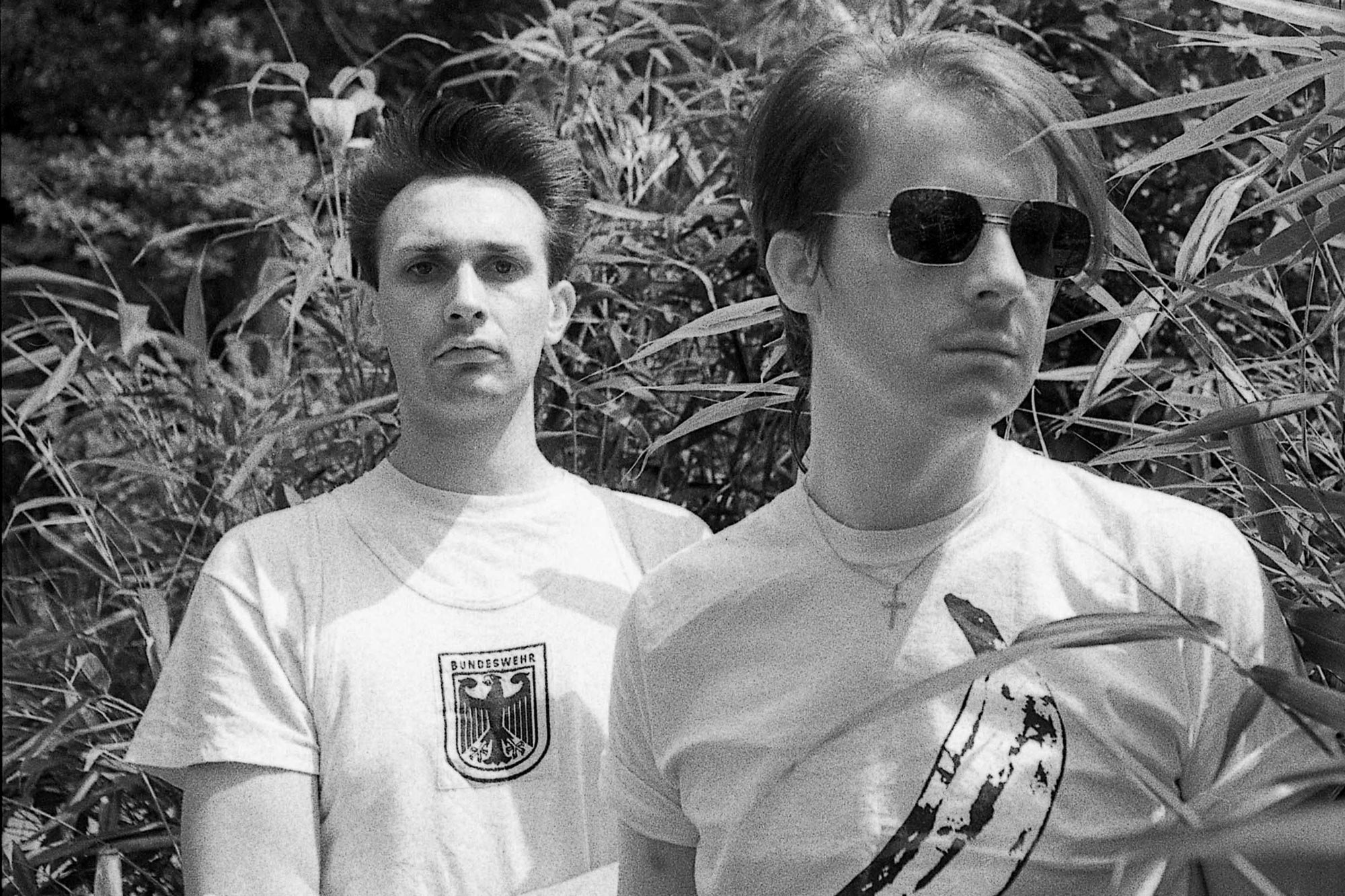
Kirk would go on to release seminal bleep and bass albums under his own name and other aliases in the mid-1990s. There are more than 40 aliases that Kirk used throughout his career to release music, from Outlaw Assassin and Dr Xavier to Biochemical Dread and Destructive Impact. Some of his revered albums from the mid-1990s include 1993’s Virtual State on Warp Records, which explored ambient techno, and his two albums as Electronic Eye, 1994’s Closed Circuit and 1995’s The Idea of Justice.
White labels by another project, Sandoz, first began to appear in 1992 and were collected as the compilation Digital Lifeforms in 1993. As Kirk told Resident Advisor in 2016, “the great thing about Sandoz was it was the time that people were just putting out white labels and no one knew who was behind it … That was great for me because you’re always carrying around the baggage, ‘Oh, it’s him out of Cabaret Voltaire’. But when Sandoz came out, nobody had a fucking clue.”
Sandoz saw Kirk bringing his years spent listening to the production work of dub greats like King Tubby and Lee Scratch Perry to bear on his music, including the influence of African polyrhythms and sampled chanting. It would become one of his most well-known post-Cabaret Voltaire music aliases.
Never one to trade on past glory, Kirk pushed himself relentlessly as an artist, seeking the new, the unexplored. He refused to perform old Cabaret Voltaire material, saying he didn’t see the point. He refused huge money offers to reunite the band and after 26 years, when he did revive the band, albeit as a solo project, he delivered work that was vital, contemporary and had something to say. As we grapple with his loss, the four new Cabaret Voltaire releases and almost 50 years of cutting-edge music is our solace. We have truly lost a giant.

